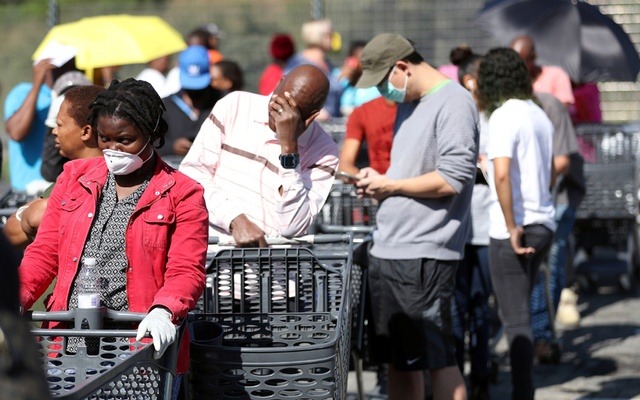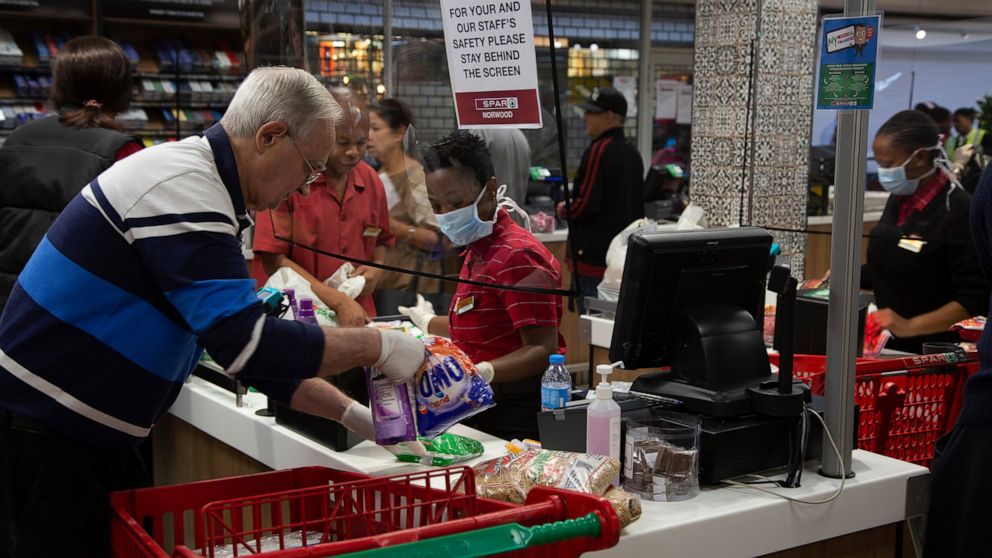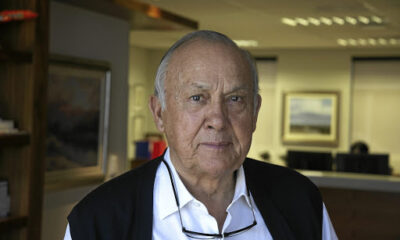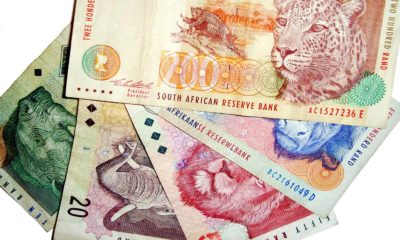- South Africa Moves to Lockdown as Confirmed Cases Hit 554
South Africa, Africa’s second-largest economy and the nation with the highest confirmed coronavirus cases on the continent, has announced a 21-day lockdown to prevent further spread of the pandemic.
President Cyril Ramaphosa on Monday announced that starting from Thursday’s midnight, the country will be on complete lockdown to curb the spread of the pandemic.
Ramaphosa had deployed the army and police on the streets and ordered even underground workers in mines to suspend operations and confined tourists who had arrived the country from high-risk nations to their hotels, making the move the toughest measures on the continent since the outbreak.
 The president said the number of confirmed cases jumped by six-fold in just eight days during his Monday address and warned that “this number will continue to rise,” before the health ministry confirmed another 150 cases on Tuesday morning.
The president said the number of confirmed cases jumped by six-fold in just eight days during his Monday address and warned that “this number will continue to rise,” before the health ministry confirmed another 150 cases on Tuesday morning.
“It is clear from the development of the disease in other countries and from our own modeling that immediate, swift and extraordinary action is required if we are to prevent a human catastrophe of enormous proportions in our country,” he said.
Africa’s most advanced economy plunged into the second economic recession in two years in the fourth quarter of 2019, suggesting that the nation has little to zero fiscal space for stimulus if things get out of hand.
“We will have to use all what’s possible in terms of reprioritisation to address the current challenges,” senior finance ministry official Dondo Mogajane said on Tuesday.
The lockdown is expected to worsen the country’s economic position and pressure Cyril Ramaphosa administration even more given the nation’s almost 30 percent unemployed population. Small businesses are concerned the 21-day lockdown would hurt their businesses despite tax subsidies and relief announced by the administration to ease the stress on small businesses and sustain job creation.
A 31-year old small business owner, Kristalia Syrrafos, said she is expecting the situation to affect small businesses more because of their limited liquidity.
However, she said “You can’t prepare…We’ll get as much food out of here as possible and then close our doors,” she said.

South Africans queue to get groceries ahead of lockdown.
“I was expecting this shutdown, so I already bought quite a lot of things,” Patience Khumalo, 35, a retired security company manager who now drives an Uber, said while loading up his trolley with oil, peppers and rice.
“The president made a good move to stop infections early, but some people are going to suffer.”
The total number of confirmed cases in South Africa rose to 554 this week, making the country the highest in the Sub-Saharan region. The total confirmed cases on the continent rose above 1,400 this week.

 Forex3 weeks ago
Forex3 weeks ago
 Naira2 weeks ago
Naira2 weeks ago
 Billionaire Watch2 weeks ago
Billionaire Watch2 weeks ago



 Naira3 weeks ago
Naira3 weeks ago






 Naira2 weeks ago
Naira2 weeks ago




 Naira1 week ago
Naira1 week ago




 Naira4 weeks ago
Naira4 weeks ago






 Naira1 week ago
Naira1 week ago
























